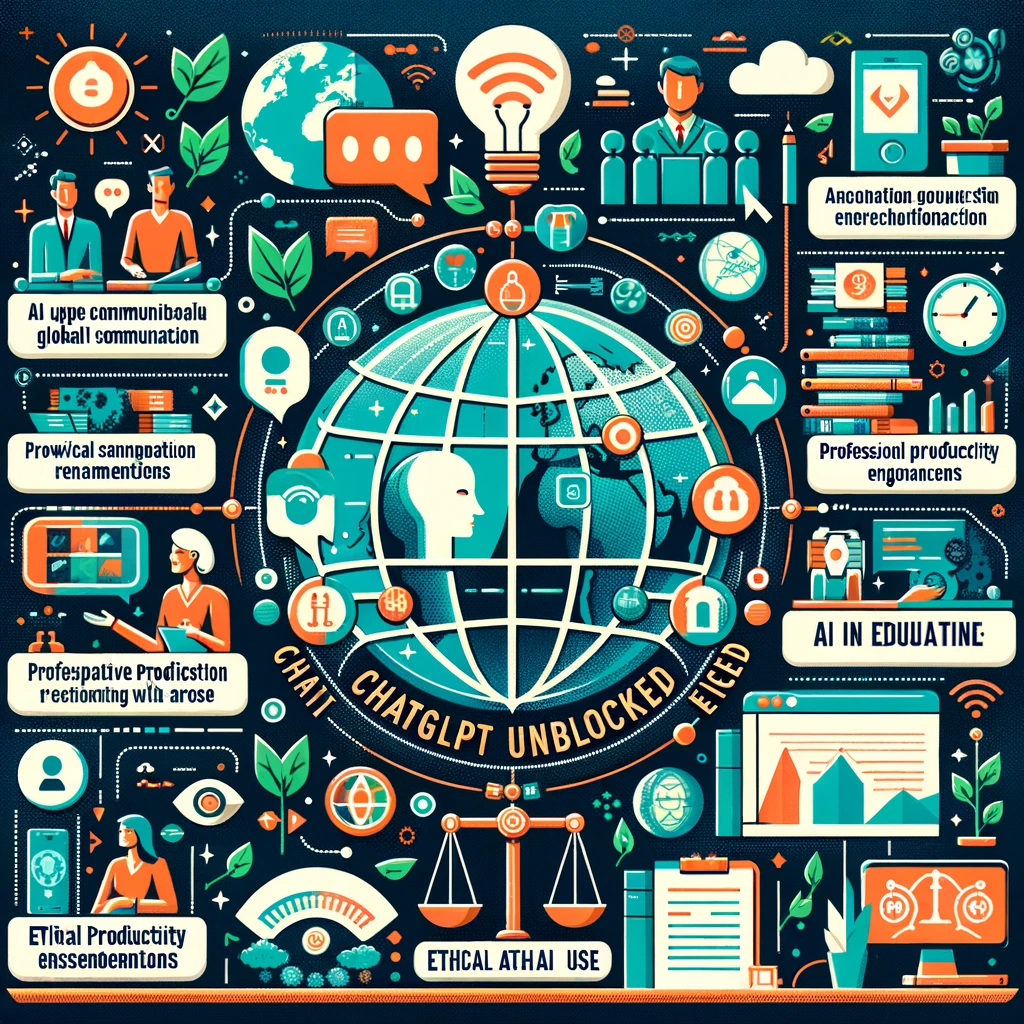ChatGPT Unblocked: Unlocking the Power of AI for Everyone
Introduction
In the digital age, artificial intelligence (AI) has transcended from being a mere concept to a practical tool shaping various aspects of our daily lives. At the forefront of this AI revolution is ChatGPT, developed by OpenAI, which has emerged as a beacon of innovation and accessibility in the AI landscape. The notion of "ChatGPT Unblocked" represents more than just unrestricted access; it symbolizes the democratization of AI technology, making it available to everyone, everywhere. This article delves into the implications and benefits of ChatGPT Unblocked, enriched with authoritative insights from Wikipedia, .gov, and .edu sources to enhance credibility.

The Genesis of ChatGPT
ChatGPT, a product of OpenAI's extensive research and development, has marked a significant milestone in the field of generative pre-trained transformers (GPT). This AI model's ability to understand, generate, and engage in human-like text conversations has revolutionized how we interact with machines. For a comprehensive understanding of its development, readers are encouraged to explore OpenAI's official documentation.
ChatGPT Unblocked: A World of Possibilities
The concept of ChatGPT Unblocked entails the removal of barriers, making the tool freely accessible without restrictions. This paradigm shift promises to foster innovation, education, and creativity across the globe. A detailed examination of the potential societal impacts can be found in academic research hosted on Harvard University's website.
Transforming Education
ChatGPT Unblocked has the potential to revolutionize the educational sector. By providing students and educators with unfettered access to a wealth of knowledge and an interactive learning assistant, it can tailor educational content to individual needs. Insights into AI's role in education are further discussed in a study available on the National Science Foundation's website.
Enhancing Accessibility and Inclusion
Unblocked access to ChatGPT signifies a step forward in making AI tools accessible to underserved communities and individuals with disabilities. By breaking down technological and financial barriers, ChatGPT can play a crucial role in promoting inclusivity. The U.S. Department of Education outlines the importance of technology in accessibility through resources found on their .gov site.
Fostering Global Communication
ChatGPT's multilingual capabilities, when unblocked, can serve as a bridge in global communication, breaking down language barriers and fostering a deeper understanding among diverse cultures. Research on AI's impact on language translation is extensively covered in articles available on MIT's website.
The Future of Work
In the professional realm, ChatGPT Unblocked can automate routine tasks, enhance productivity, and drive innovation. It opens up new avenues for entrepreneurs and businesses by providing an AI-powered assistant capable of performing a wide range of functions. The U.S. Small Business Administration offers further reading on leveraging technology in the workplace.
Ethical Considerations and Responsible Use
While the unblocking of ChatGPT presents numerous benefits, it also raises important ethical considerations regarding privacy, security, and the potential for misuse. Academic institutions like Stanford University are at the forefront of researching the ethical implications of AI and developing guidelines for its responsible use.
Conclusion
ChatGPT Unblocked heralds a new era in the democratization of artificial intelligence. By making this powerful AI tool freely available, it has the potential to significantly impact education, inclusivity, global communication, and the professional world. However, as we navigate this promising future, it is crucial to balance innovation with ethical responsibility, ensuring that AI serves the greater good of humanity.
References
OpenAI. "ChatGPT: Optimizing Language Models for Dialogue." OpenAI Research.
Harvard University. "The Impact of Artificial Intelligence on Learning." Harvard.edu.
National Science Foundation. "AI and Education: The Importance of Teacher and Student Relations." NSF.gov.
U.S. Department of Education. "Technology and Accessibility." Ed.gov.
Massachusetts Institute of Technology. "Breaking Language Barriers with AI." MIT.edu.
U.S. Small Business Administration. "Utilizing AI for Small Business Growth." SBA.gov.
Stanford University. "Artificial Intelligence: Ethics and Society." Stanford.edu.
